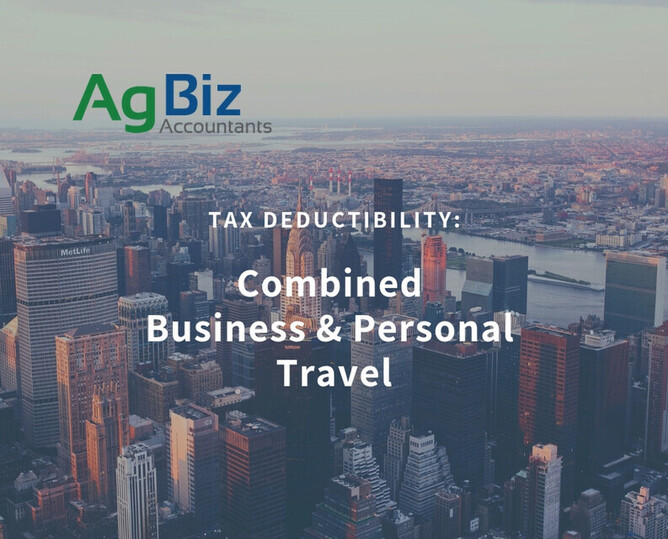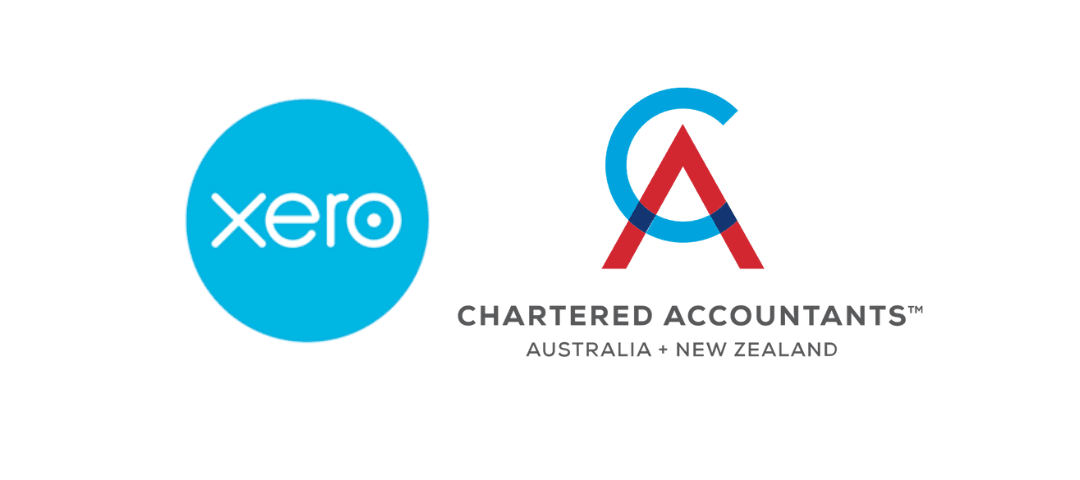Business travel often provides a great opportunity to add a few extra days to explore a new location or rest and relax and enjoy some time away from home. This article outlines the tax-deductibility for business travel that includes a personal element.
Travel expenses generally include; flights, accommodation, visa, carparking, food, conference or specific business-related expenses, internal travel and entertainment for business, and private entertainment.
The expenses can be broken into three categories:
1. Combined expenses for both personal and business. This may include; flights, accommodation (if all in the same location for the entire duration of the trip), visa, carparking, and some internal transport costs (e.g., travel from airport to hotel).
These expenses are apportioned for tax deductibility between the business days out of the total days of the trip. For example, a ten-day trip that involved a three-day business conferenced followed by seven-day private holiday results in 30% of the combined expenses being tax deductible for business.
2. Business related expenses. These expenses do not have a private element and relate only to the business activity. For example, if travelling for a conference, the conference ticket price only relates to the business. Likewise travelling to and from the accommodation to the conference location, or business entertainment.
Business related expenses are 100% tax deductible. If overseas, business related entertainment is also 100% tax deductible (compared to 50% tax deductibility in NZ).
3. Private related expenses. These expenses are private and have no nexus to earning business income or carrying on the business. Examples may include having a few days after business activities to relax or travelling to another nearby location for a private holiday.
These expenses are not tax deductible as they have no nexus to earning income or carrying on the business.
Practical advice and recommendations:
While it may seem straight forward having three distinct categories often real life is different.
4. Travel days either side of the day the conference can often be 100% business related if spent travelling. For example, a conference finishing on Friday evening at 5pm followed by networking drinks will result in a returning flight on Saturday. Therefore, it seems appropriate the Saturday is included as a business-related day.
5. Part business days. Sometimes a business meeting (say with a supplier, or customer) is scheduled for the morning, followed by a private afternoon, before another meeting the next day. Or perhaps a business day, followed by a private day, then another business day due to meeting scheduling or availability.
In this situation it would be appropriate to include the ‘free afternoon’ and the ‘in between’ day as a business counting day for the apportionment (category 1), but not include any specific costs for the afternoon or free day (private activities).
We recommend a commonsense approach be taken to be determine if a business meeting or business event has nexus to your business and can count as a full day, or perhaps a further apportionment is required for a half day. This is largely subjective by nature and will depend on the tax payer individual circumstances.
6. Keep an intinary or diary or your trip. Smart phones may now track this automatically if activated through location tracking, and often photos are time, date and location stamped.
7. Keep private spending separately. Pay for apportioned expenses and business-related expenses from your business bank account or credit card (and remember to make the apportionment if required). Pay for private spending from a separate bank account or credit at the time of purchase to ensure there is no confusion.
Case Study
John is a real estate agent in Cambridge and attends a “sales and negotiation conference’ in Sydney. The conference is for three days, Wednesday, Thursday and Friday, 9am to 5pm. John also decides to spend the weekend to learn strategies in practice, shadowing a top Sydney real estate agent (Jenny) and arranged to attend all of their open homes on Saturday and Sunday afternoons from 1 – 5pm. John flys to Sydney on Tuesday and returns to NZ on the following Monday.
John’s entire trip is tax deductible. This is because the trip is related to carrying on John’s business. The travel day prior to the conference starting and return flight home on Monday are incidental to his trip. Likewise, the part days on Saturday and Sunday are again incidental to the business portion.
If John was to spend Saturday and Sunday to check out the sights of Sydney (private use). Then an apportionment would be required for the combined expenses (flights etc), and expenditure relating to the two private days would not be tax deductible.
Note: there is no GST on overseas expenses and international travel.
Contact Tim Doyle today for a no obligation phone call or meeting on 07 823 4980 or email Tim. Our office is in Cambridge, NZ, but distance is no problem.
This material has been prepared for informational purposes only, and is not intended to provide, and should not be relied on for, tax, legal or accounting advice. You should consult your own tax, legal and accounting advisors before engaging in any transaction.



